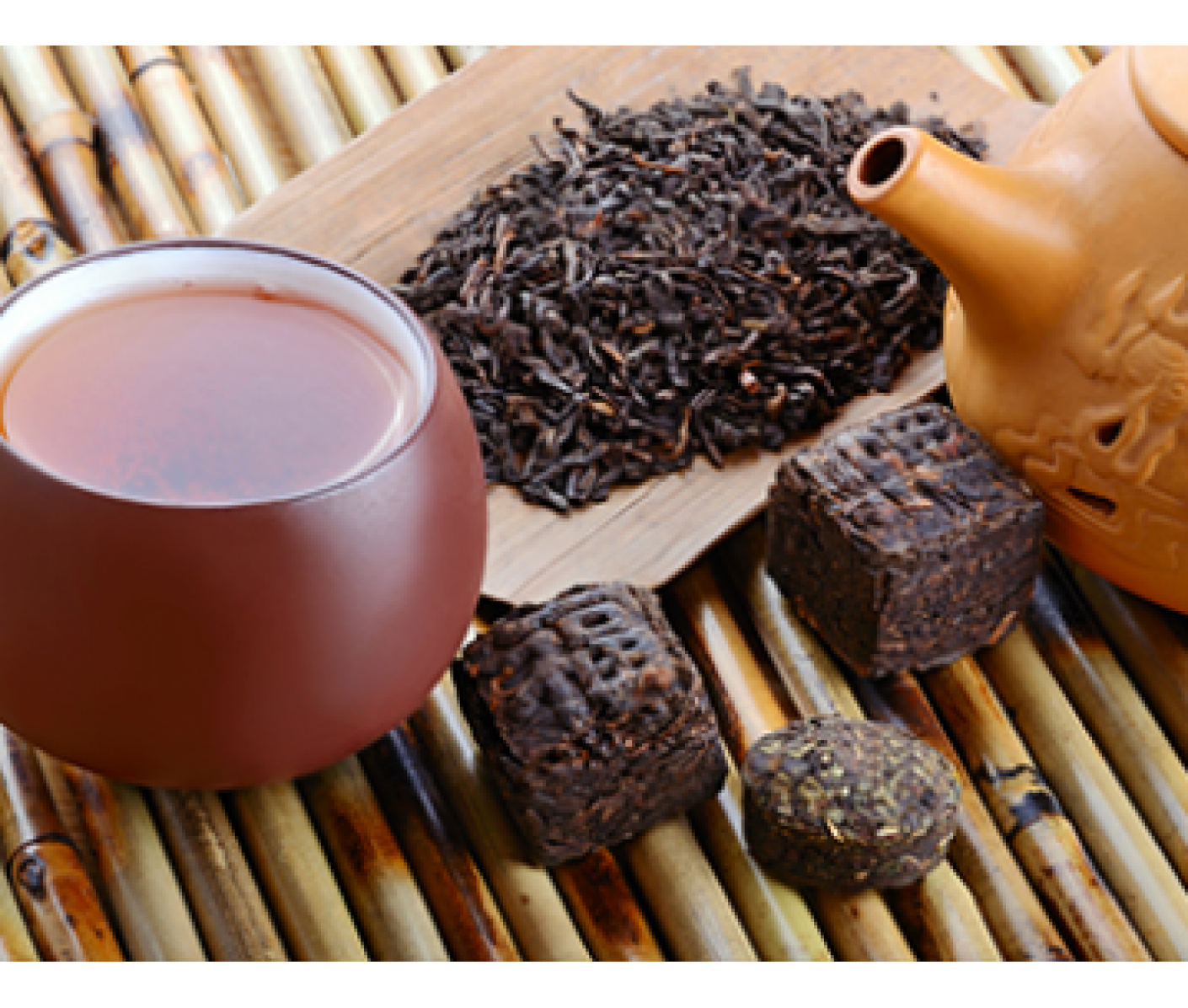Learn more about Pu-erh tea

What is Pu-erh tea?
Pu-erh tea is made from the leaves and stems of the Camellia sinensis plant. This is the same plant that is used for making green, oolong, and black teas. Though the same source plant is used, the different teas are made by using different processes. After harvesting, the processing of pu-erh tea involves two stages. During the first stage, the tea leaves are prepared similar to Green Tea. During the second stage, the leaves undergo fermentation and then prolonged storage, or "aging," under high humidity. Pu-erh tea that is aged for a longer period of time is supposed to taste better. However, it can also smell musty or taste stale because Mold and bacteria will sometimes attack the tea during the long aging process. Pu-erh tea is produced mainly in the Yunnan district in the southwestern part of China. It has also gained popularity in Taiwan. Pu-erh tea is used as medicine.
Pu-erh tea is used for improving mental alertness and sharp thinking. It is also used for High Cholesterol, Obesity, and Diabetes, but there is no good scientific evidence to support these uses.
How does it work?
Pu-erh tea contains caffeine, although not as much caffeine as other teas. Caffeine works by stimulating the central nervous system (CNS), heart, and muscles. Pu-erh tea also contains antioxidants and other substances that might help protect the heart and blood vessels.
There is interest in using pu-erh tea for lowering cholesterol because, unlike other teas, it contains small amounts of a chemical called lovastatin. Lovastatin is a prescription medicine used for lowering cholesterol. Investigators think that bacteria that sometimes contaminate pu-erh tea may somehow make the lovastatin in the course of their normal life cycle. Animal research suggests that pu-erh tea might lower certain blood fats called triglycerides as well as total and "bad" low-density lipoprotein (LDL) cholesterol. It might also raise "good" high-density lipoprotein (HDL) cholesterol. But it isn't known if pu-erh tea has these benefits in humans.
